When Liverpool Football Club was purchased by Fenway Sports Group in 2010, not many supporters realised quite how close the club was to going into administration. Even fewer realise or remember it today.
This Is Anfield sat down to speak to the man who brokered the deal to, effectively, save the club and rid us of the ownership of Tom Hicks and George Gillett.
“It was bad,” admits Sir Martin Broughton, who was appointed as Liverpool FC chairman with the remit to oversee the sale of the club at a time when the co-owners, Hicks and Gillett, refused to even sit next to each other at Anfield.
“It came ultimately very close,” to administration explains Broughton. “I don’t think Tom Hicks or George Gillett, knew just how perilous seriously.”
Broughton was brought in as an independent chairman at a time when debts the club owed were being renewed on a weekly basis and the most recent club accounts showed interest payments of £40 million over the last year. Liverpool owed £472.5 million to its creditors, thanks to the leveraged buyout that Gillett and Hicks had adopted.
“I’ve never come across that in all my business career,” he explains. “I’ve never come across a situation where the debt is being renewed on a weekly basis.
“They [the Royal Bank of Scotland] gave us six months [to find a buyer]. But I’d say it came very close six months later, because we were at a stage where at that stage we did have two buyers, both bidding the same amount. And that’s a pretty fair definition of a market value.”
But Hicks and Gillett didn’t want to sell at the value that the two bidders – FSG (then known as New England Sports Ventures and one other) – “because they weren’t going to get any money [profit].”
Broughton, a lifelong Chelsea fan but who admits he doesn’t enjoy games between the Reds and Blues as he is “emotionally attached to both teams,” explains how “George [Gillett] didn’t take the threat seriously at all.
“‘They don’t have the courage to put the administration, end of story, so we can ignore the bank. We can do what we like. They’ll never put it into administration. It’s too much bad PR’ – and there was some truth to that.
“I think the only reason they were talking and rolling over on a weekly basis was because they really didn’t want to go into administration.”
Some fans wanted administration
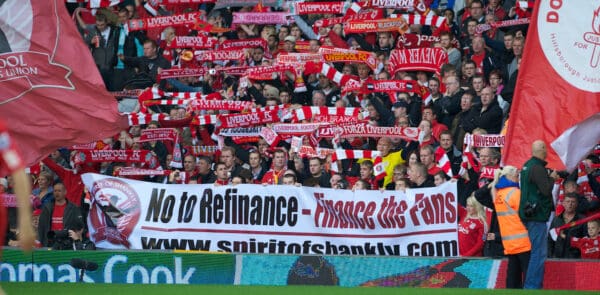
When FSG completed the protracted purchase of the club at the High Court on October 15, 2010, literally hours from the six-month deadline, Liverpool Football Club were 18th in the league table and the Premier League had confirmed to the club that entering administration would’ve meant a nine-point deduction.
“It was a dangerous position to lose nine points, yes,” confirms Sir Martin.
“We spoke with the Premier League about the impact of administration, of losing clients, etc. But by that time, the emails and the messages I was picking up was ‘we’d prefer to go into administration than have Hicks and Gillett stay around.’
“Now, I wouldn’t say that was a majority of fans because the majority are silent on that sort of thing, the majority don’t express a view.
“But I was quite surprised at the number of messages we were getting, saying we’re willing to suffer the consequences of going into administration. And at that stage I think the bank was picking up the site messages and it would have been much more willing to actually pull the trigger.”
Administration would have had a huge impact on the club, and who knows what may have happened from there, with a strong example being that of Leeds United, notes Broughton.
Fan protests DID help
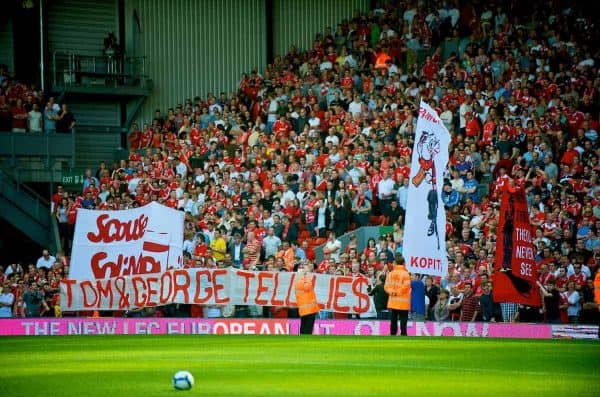
‘Tom and George tell lies’, ‘No to refinance’ – just a selection of the banners that were held aloft on the Kop on multiple matches, with a sit-down protest taking place after more than one fixture as Gillett and Hicks refused to sell the club.
There were claims that the protests weren’t helpful, even from then-mananger Roy Hodgson, would you believe. But Broughton puts the record straight: the protests did help.
Indeed, Broughton explains how Hicks and Gillett had “stopped coming to any of the matches because of all the protests really.”
“Those protests, the cumulative effect, I think was helpful,” says Broughton.
“I can understand Roy’s point is that when you’ve got an unhappy scene, when you’ve got a lot of behind the scenes, but very public, antagonism going on between the fans, the owners, a process going on with a great deal of uncertainty.
“It affects the team. And so part of the team’s poor performance, in my view, was 100 percent an element of it was all of the unrest and the uncertainty. And ‘will I still be here and will the new owners want me?’ and all that sort of thing goes on. And you only have to be I really do one percent off your game and it makes a big difference.
“So I think general confidence was very low. And I think from Roy’s perspective, ‘take away any protest, let us get on with the game and I’ve got a better chance of getting the best out of the players’. So I can see from his viewpoint as a as a team manager, it wasn’t helpful from an overall process piece.”
“A pleasure”
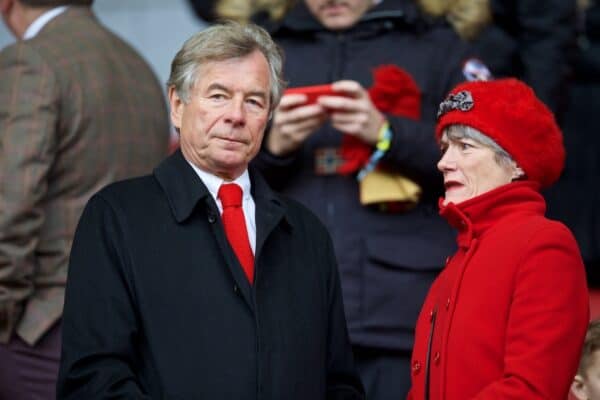
Speaking to Sir Martin, it’s clear that he has an affection for Liverpool, something that also comes across in his new book ‘Whenever I Hear That Song’ and reasons for taking on the role initially.
He describes his brief tenureship as chairman as “a pleasure” and of You’ll Never Walk Alone being an “iconic football anthem” that “makes your hair stand on end every time you’re there.”
When the history books are written, Broughton’s role in saving Liverpool should perhaps be highlighted more than most realise.
* Sir Martin’s book, Whenever I Hear That Song, is available now.

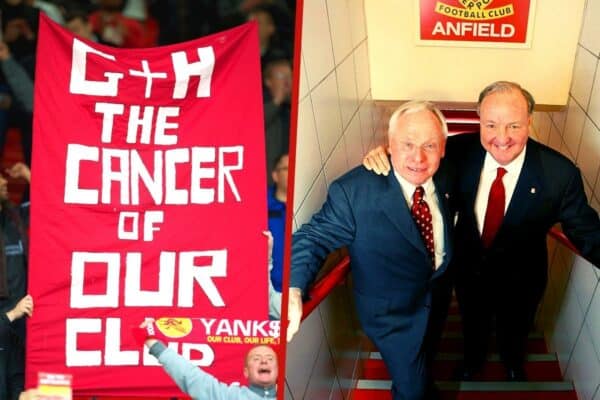

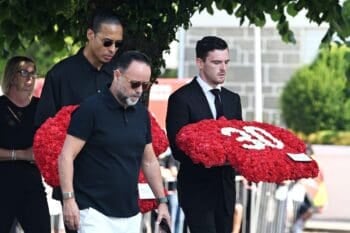
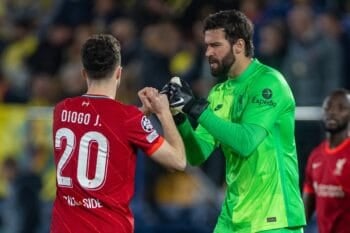
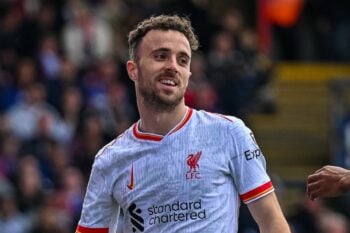
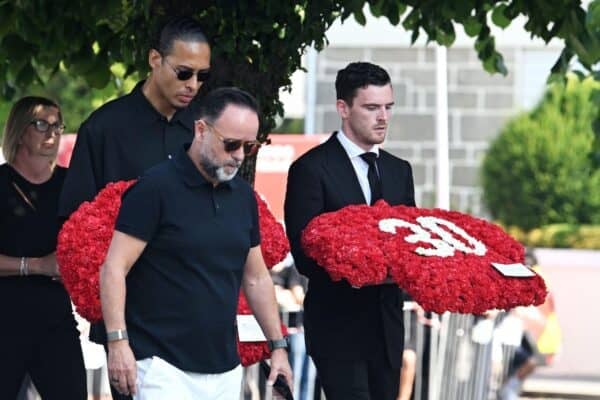
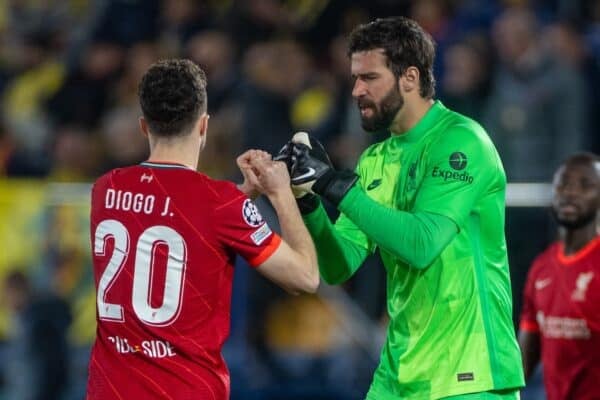
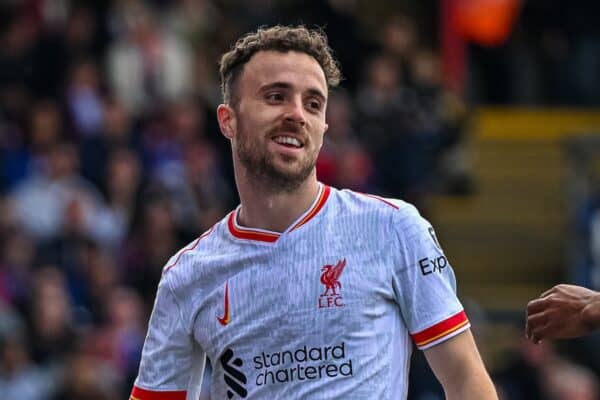
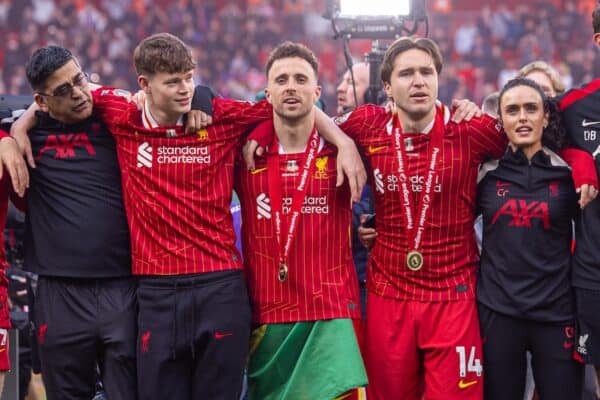
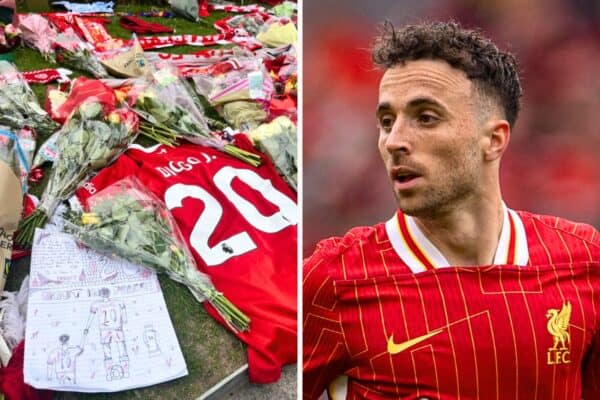
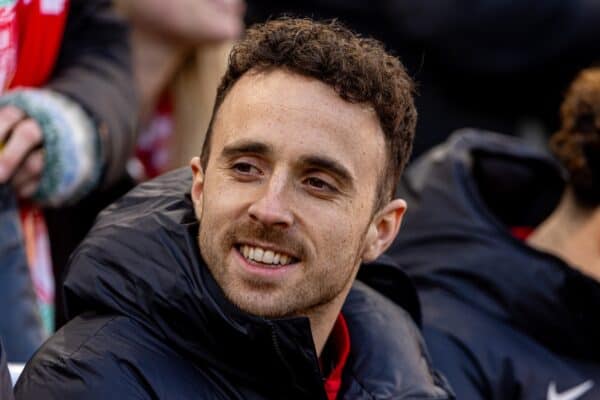
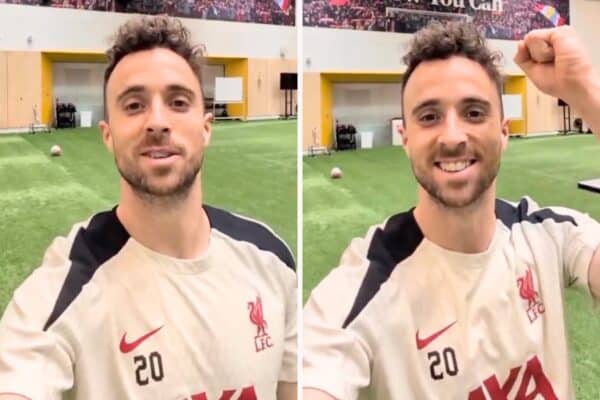
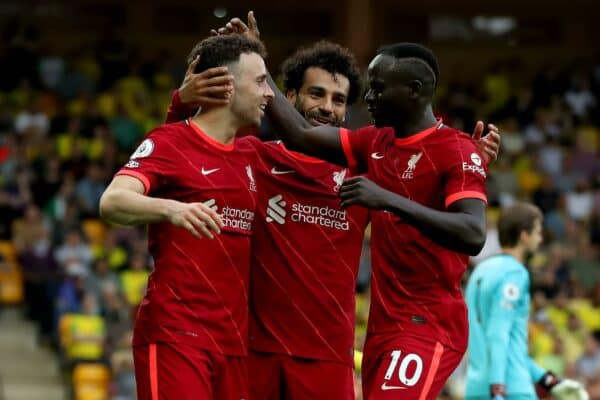



Fan Comments